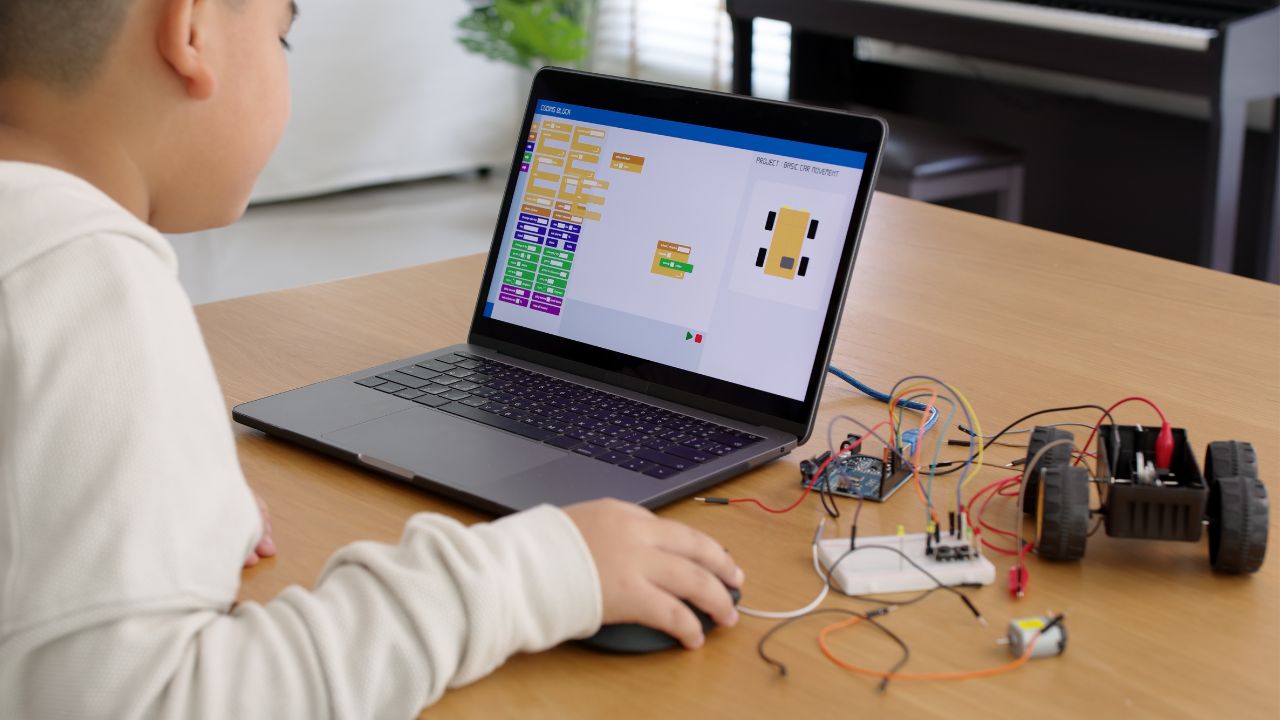In the ever-evolving landscape of education, artificial intelligence (AI) has emerged as a game-changer, transforming how students learn and how educators teach. By 2025, AI tools are not only enhancing traditional learning methods but are also creating new opportunities for personalized and effective education. This article explores the top AI tools that are revolutionizing education in 2025 and how they’re shaping the future of learning.
The Role of AI in Modern Education
AI has found applications across various facets of education, from automating administrative tasks to enabling adaptive learning experiences. By leveraging AI, educators can:
- Personalize Learning: Tailor educational content to the unique needs and pace of each student.
- Improve Accessibility: Provide learning opportunities to students with disabilities or those in remote areas.
- Enhance Engagement: Use gamified and interactive tools to make learning more engaging.
- Streamline Administration: Automate grading, attendance, and scheduling tasks, giving educators more time to focus on teaching.
With its transformative potential, AI is addressing long-standing challenges in education and creating a more inclusive, efficient, and impactful learning ecosystem.
Top AI Tools Transforming Education in 2025
Here are some of the most innovative AI tools reshaping education this year:
1. Adaptive Learning Platforms
Adaptive learning platforms like DreamBox and Knewton are at the forefront of personalized education. These tools analyze students’ strengths, weaknesses, and learning styles to deliver customized lessons and assessments. By continuously adjusting the content based on student performance, adaptive platforms ensure that learners stay challenged without feeling overwhelmed.
2. AI-Powered Tutoring Systems
Tools like Carnegie Learning and TutorMe AI are revolutionizing one-on-one tutoring. These systems provide instant, personalized feedback and guidance, simulating the experience of having a private tutor. With advanced natural language processing (NLP), AI tutors can answer complex questions and provide explanations tailored to the student’s understanding.
3. AI-Driven Assessment Tools
Grading assignments and providing feedback can be time-consuming. AI-driven assessment tools like Gradescope and Turnitin are making this process faster and more efficient. These tools not only grade assignments but also provide detailed analytics on student performance, helping educators identify learning gaps.
4. Gamified Learning Applications
Educational apps like Duolingo and Quizizz use AI to gamify learning. By incorporating AI algorithms, these tools create engaging, interactive experiences that adapt to the user’s progress. Gamified learning keeps students motivated and makes complex subjects more approachable.
5. Language Learning Platforms
AI-powered platforms such as Rosetta Stone and Babbel are transforming language education. These tools use speech recognition and NLP to provide real-time pronunciation feedback and interactive conversation practice, making language learning more immersive and effective.
6. AI in Special Education
Tools like Voiceitt and Otter.ai are enabling students with disabilities to access education more effectively. These AI tools provide speech-to-text services, voice recognition, and other assistive features that cater to diverse learning needs.
7. Virtual Reality (VR) and AI Integration
Platforms like ENGAGE and zSpace are combining AI with VR to create immersive learning environments. Students can explore historical sites, conduct virtual science experiments, or practice skills in simulated scenarios, making learning more interactive and engaging.
8. AI-Enhanced Collaborative Tools
Collaboration is a vital skill in the modern world, and tools like Google Workspace with AI integrations are facilitating it. Features such as real-time suggestions, automated summaries, and enhanced scheduling capabilities help students and teachers work together more effectively.
Benefits of AI in Education
The integration of AI in education offers numerous advantages:
- Increased Accessibility: AI makes education more inclusive by catering to students with diverse needs and from varied backgrounds.
- Cost Efficiency: By automating repetitive tasks, AI reduces operational costs for educational institutions.
- Enhanced Engagement: Interactive tools keep students more involved and motivated in their studies.
- Data-Driven Insights: AI tools provide actionable insights into student performance, enabling targeted interventions.
- Scalability: AI can support large numbers of students simultaneously, making it ideal for online education platforms.
Challenges and Ethical Considerations
While AI is revolutionizing education, it also presents challenges:
- Data Privacy: Protecting student data is crucial as AI tools collect and analyze large amounts of personal information.
- Bias in AI: Ensuring that AI systems are free from biases that could disadvantage certain groups of students is a critical concern.
- Dependency on Technology: Over-reliance on AI tools could reduce critical thinking and problem-solving skills.
- Digital Divide: Not all students have equal access to the technology required to benefit from AI tools.
Addressing these challenges requires a collaborative effort from policymakers, educators, and technology developers.
Also Read: Top-Ranked PhD Programs in the USA for 2025
The Future of AI in Education
As AI continues to evolve, its impact on education will only grow. Emerging trends to watch include:
- Hyper-Personalized Learning: AI will offer even more tailored educational experiences, considering students’ emotions, preferences, and real-time feedback.
- Lifelong Learning Platforms: AI-driven platforms will support continuous for professionals and lifelong learners.
- Global Collaboration: AI tools will enable seamless collaboration between students and educators worldwide, fostering cultural exchange and global learning.
- Integration with Emerging Technologies: AI will work alongside technologies like blockchain, IoT, and quantum computing to further innovate .
Conclusion
AI in education is no longer a futuristic concept; it is a present-day reality that is transforming the way we learn and teach. By 2025, AI tools have become indispensable in creating personalized, accessible, and engaging learning experiences. While challenges remain, the potential benefits far outweigh the drawbacks, making a cornerstone of modern education.
As we embrace this technological revolution, it’s essential to focus on ethical implementation and equal access to ensure that every learner benefits from these advancements. The future of education is bright, and AI is lighting the way.

